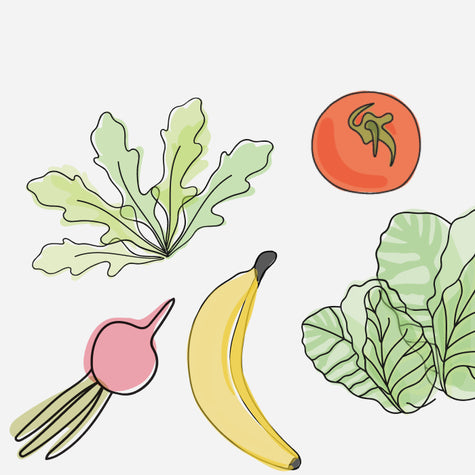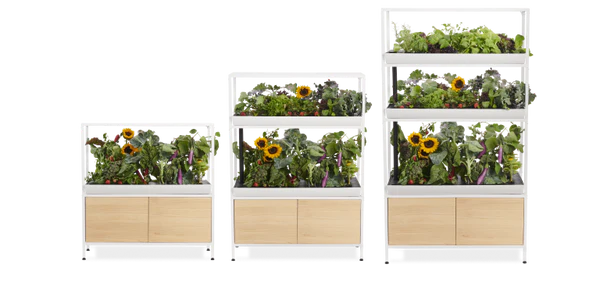In honor of Earth Day, we wanted to share a few ways you can help reduce food waste. Food waste contributes to greenhouse gas emissions as well as wasting resources like water, which is not so great for the environment. While individuals don’t make up a majority of the food waste problem, every little bit counts. Making the most of your fresh produce will not only help the environment but it will also help your wallet!
Learn How to Properly Store Your Vegetables
Storing your vegetables the correct way will reduce the amount of produce that goes bad before you have a chance to eat it. For example, if you place carrots in your refrigerator without any type of cover or container, you’ll likely find them limp and dehydrated the next day. Most veggies and fruits have a shorter lifespan. Even if you do everything right, you only have 3-5 days to use the asparagus you picked up from the store.
You also want to learn where to store your vegetables and fruit. The Spruce Eats has a great resource for helping guide you where and how to store your produce. According to the U.S. EPA, storing apples, bananas, and tomatoes apart from other perishables may help keep them all fresh. Or, if you need to ripen those avocados, add them to a bag with tomatoes and voila, ripened avocados!
Re-Consider Expiration Dates
We’ve all looked at expiration dates and immediately tossed it in the trash. A change in packaging happened a few years ago in the food market. Most products that you purchase now have a “best by” date. Those dates are the ideal date to use an item but not its actual expiration date. Before tossing it, give it a look and smell to see if it still seems fine. If so, you are in the clear to consume it.
Grow Your Own Vegetables, Greens, and Herbs in a Rise Garden
Growing your own vegetables, greens, and herbs in our smart indoor garden all year long means that you always have fresh produce on hand. We estimate that growing your own food in a Rise Garden will reduce your food waste by approximately 20% each year. Rise Gardeners harvest their produce at the time of use so that means they won’t go bad in the fridge or on the countertop. Plus, growing your own food makes you more invested in eating the food you grow.
Use All Parts of a Vegetable
Another big part of food waste is only using a portion of the vegetable. While we may only intend to use beets in a recipe, the beet tops are actually edible too! Use your beets as intended and then whip up some pesto with the beet tops. Did you know that the leaves of a plant like lavender or chamomile are just as great as the flower part? Add them to your tea. And, if you’ve never had fried squash blossoms, you are missing out!
When in doubt, grab all of the extra veggies and veggies pieces and add them together to make a delicious veggie stock that can be stored for future use.
Start Menu Planning
Menu planning is one of the easiest ways to save money and stop food waste. If you have your meals planned for the week, you easily know what you have to buy and when to cook it. Another great step to take is to plan multiple meals with a few of the fresh items that you purchased. Instead of using just a few stalks of celery for veggie soup, plan to make the soup and some chicken salad. Then, buy some hummus and cut the celery up and store it in snack packs to grab throughout the week.
If you have a Rise Garden, you should also plan your garden for what you like to eat. We have a great post on the different ways you can menu plan with your smart garden. Check it out here.

